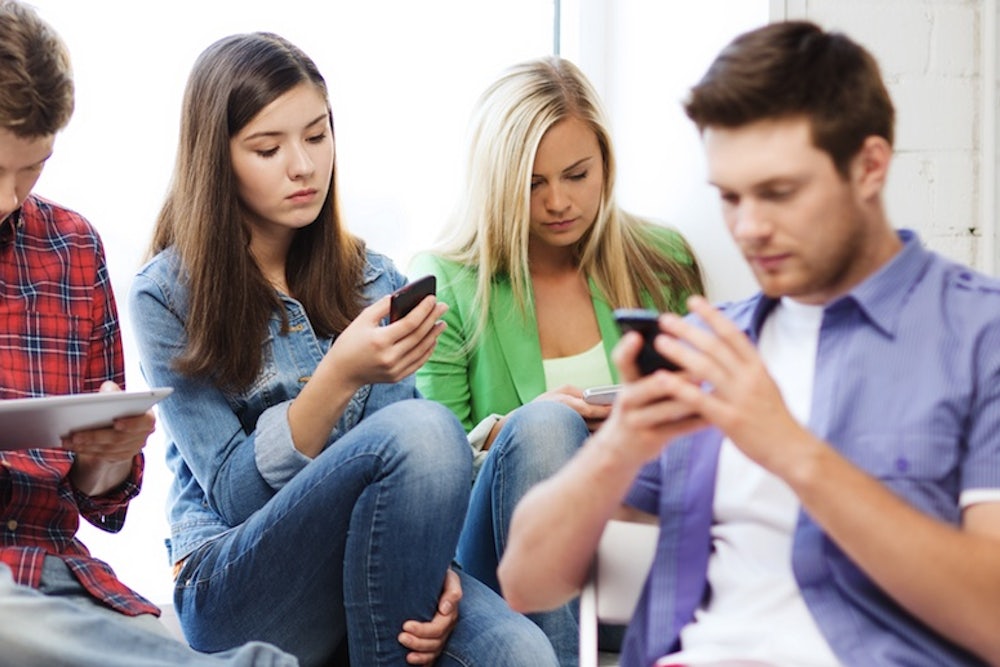It’s hard to remember a time when Facebook was cool. It’s losing users rapidly, as people turn to newer sites like Whisper and Secret; some speculate that its days are numbered. Its experiments with digital gerrymandering have been called “a threat to democracy.”
In its latest PR disaster, Facebook is drawing condemnation from all corners after a new study on emotional contagion online reveals that the social networking site allowed researchers to manipulate users’ moods without their knowledge or consent. For one week in 2012, a team of researchers including psychologists and data scientists exposed 700,000 users to a disproportionate number of either positive or negative status updates and monitored the posts users wrote in response. They found that emotions were “contagious”: Users who viewed more positive content produced cheerier content themselves, while those who saw more negativity in their news feeds wrote more depressing updates.
The Daily Mail claims, “Facebook made users depressed in secret research.” Laurie Pennie, writing for the New Statesman, compared Facebook to a dictatorship. TIME says, “Facebook totally screwed with a bunch of people in the name of science.” Facebook’s defenders point out that the site probably didn’t act illegally; by accepting the "Terms of Service" when they sign up, users technically give their permission to be included in research like this. But even Susan Fiske, the Princeton psychology professor who edited the study, admitted recently, “I'm still thinking about it and I'm a little creeped out, too.”
Regardless of the morality, the study would be easier to justify if it actually yielded an interesting result. But what this study looked into is not remotely surprising. Psychologists have known for decades that social contagion affects nearly every aspect of our lives, from everyday habits like eating and drinking to major life decisions like where you live and whether you have children: Sociologists have found that women of all ages are more likely to become pregnant if their friends from high school are having babies. Poor self-control can spread from one person to another, too: Psychologists have shown that when a couple has to make a joint decision on a task like choosing between healthy and unhealthy foods or deciding how long to persist at trying to solve a difficult anagram, the partner with higher self-control yielded to the preferences of the one with less self-discipline.
Psychologists—as well pretty much anyone who’s ever interacted with another person—know that a good mood can easily spread from one person to another. In 2001, researchers at the University of North Carolina in Charlotte studied how bank tellers’ moods affected their customers’ emotions. They went to 39 branches of a national bank and observed interactions between tellers and customers, and administered surveys asking questions about how they felt about their day. They found that customers who ordered from a teller who smiled and felt positive about their day also reported a better mood after the interaction.
It’s harder to study how emotional contagion plays out online, but we shouldn’t need sketchy methodology to figure it out. Just a few months ago, in a paper in the journal Plos One, a team of researchers at the University of California, San Diego managed to study this phenomenon on Facebook by looking at existing data rather than manipulating anyone’s feelings. Lorenzo Coviello and his colleagues looked at how rainfall affected Facebook users’ moods, and found that precipitation in one city had a negative impact not only on the emotions of users in that city, but also of their friends in cities where the weather was fine. They used over three years' worth of status updates, encompassing millions of users, and compared this data to meteorological records. “For every one person affected directly, rainfall alters the emotional expression of about one to two other people," they concluded. "We find that an average rainy day decreases the number of positive posts by 1.19% and also increases the number of negative posts by 1.16%.” A rainy day in New York, they estimate, leads to about 1,500 extra gloomy posts in New York, and about 700 from users elsewhere. That's not just less unethical than the new study; it's more interesting, too.
Image via Shutterstock
